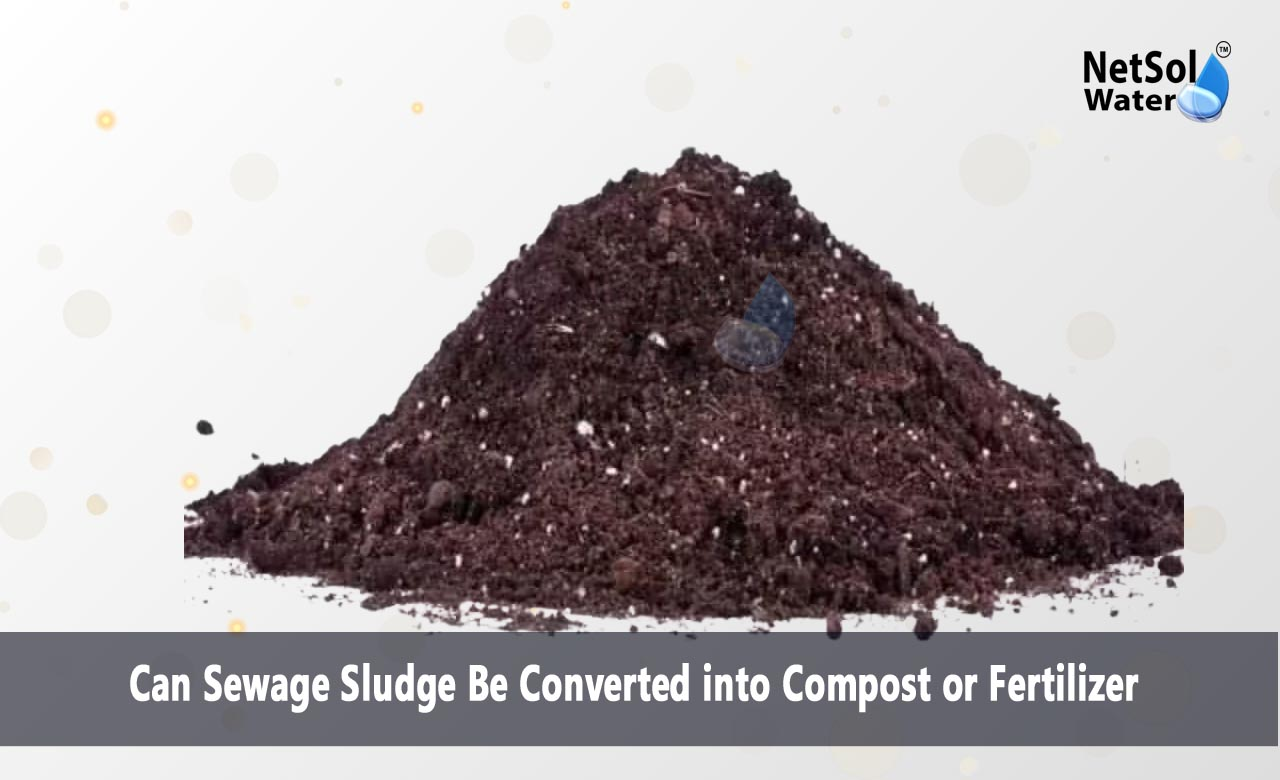Can Sewage Sludge Be Converted into Compost or Fertilizer?
Water treatment companies face many waste handling needs. Sewage sludge poses a major challenge for many plants. It holds nutrients and it holds water. It also may hold harmful matter. Many companies ask if they can turn this waste into soil enhancer. Netsol Water is a leading sewage treatment plant manufacturer and leads in safe waste use solutions. It guides companies to follow rules and to use green methods. A key step lies in change of sludge into compost or fertilizer. A company can then add this soil material to fields and to gardens. This step can cut waste and it can boost the land.
Composition and Nutrient Profile of Sewage Sludge
Before you start any process you must know what is in your sludge. Let us have a look at some key traits
Organic Matter Content
Sewage sludge holds a strong share of organic matter. This matter feeds the soil and it can feed plants. High content of organic parts can make the final compost rich and soft. Company must test their sludge to learn the level of organics. They can then match their feed mix to get the best result.
Nutrient Levels
Sewage sludge can hold key plant nutrients. It may hold nitrogen and it may hold phosphorus. These parts aid plant growth and also boost soil form. Knowing these levels helps to set a mix that fits crop needs. A proper balance can cut use of other inputs.
Contaminant Concerns
Sewage sludge can hold unwanted parts as well. It may hold metals and it may hold pathogens. These parts can harm the soil or the plants or the user. You must test for these before any use. You can then use the right method to cut these risks.
Methods to Convert Sewage Sludge into Compost
Turning sludge into safe soil mix needs a clear plan. Here we show the main ways to do it. Let us have a look at some trusted methods
Aerobic Composting
In aerobic composting you keep the mix full of air. This step helps bugs to break down the matter. You must keep the pile moist and you must turn it from time to time. The heat in the core kills many germs. After some weeks you get a dark crumbly mix you can trust.
Vermicomposting
Vermicomposting uses special worms to eat the sludge matter. The worms speed the break down and they add nutrient rich castings to the mix. You must feed the worms in a small bed and you must keep the bed damp. In some weeks you can reap a smooth worm cast compost that works well in soil.
Thermal Drying
Thermal drying uses heat to dry and to kill germs in the sludge. You spread thin layers on a warm bed or you use a drum dryer. The high heat cuts moisture to low levels and it kills most germs. The final dry solid can serve as a slow release soil aid.
Advantages of Using Sludge Based Fertilizer
After you make your compost you need to know why you should use it. Let us have a look at some key benefits
Better Soil Structure
Sludge based compost can boost soil form and it can aid water hold. This mix can make clay soils more soft and sandy soils more rich. The soil can then hold both water and air. Plants can grow strong roots with ease.
Lower Cost for Farmers
Using your own waste can cut spend on store bought mixes. Companies can save on waste haul fees and they can save on buy in fees. These cost gains can help small and large farms to keep more funds for other needs.
Lower Impact on Environment
Turning sludge into soil mix can cut waste in land fill. It also can cut losses of key nutrients. This process can help to keep local water streams clear. It can also help companies to meet green goals and to meet rules.
Conclusion
Can Sewage Sludge Be Converted into Compost or Fertilizer is more than a query it is a path to change in waste use. Netsol Water stands ready to guide each company in this change. If you wish to learn more or to request a consultation please get in touch with Netsol Water today.
Contact Netsol Water at:
Phone: +91-9650608473, Email: enquiry@netsolwater.com



